Choosing a CPU for gaming isn't as simple as it was around 5 years ago. Gone are the days of Intel's unchallenged supremacy, as AMD's Ryzen processors have now taken center stage. With a cheaper platform, better upgrade paths and now better single-core performance, Ryzen has been eating into Intel's market share and how. Team blue isn't one to sit on its laurels, however, and has pushed really hard to make their 11th gen processors as competitive as possible. While this isn't an ideal time to be building PCs, thanks to the global silicon shortage and GPU price surge, it is still a good time to take stock of everything else until prices normalize.
What to look for when buying a CPU for PC gaming

Looking for Crossword hints & solutions? Check out latest NYT Mini Crossword Answers, LA Times Crossword Answers, and Atlantic Crossword Answers
For most users looking for a gaming CPU, the focus should be choosing which platform suits them. With Intel's CPUs, upgradability isn't a huge factor as most chipsets don't have any forward compatibility with their CPUs. On the other hand, AMD's Ryzen platform AM4, had support for 4 generations of CPUs without needing to upgrade the motherboard. Right now, AMD's AM4's upgradability should not be considered as we are already at the 4th generation of desktop Ryzen CPUs. AMD's next generation of CPUs will feature a new socket and it remains to be seen whether it's built with forward compatibility in mind.
As of October 2021, we are left with Intel's 11th gen Core processors and AMD's Ryzen 5000 series processors for mainstream gaming with Intel's 12th gen CPUs not going mainstream for a while until 2022. With Intel finally bumping their core counts up recently, the Ryzen and Core lineups are more or less evenly matched these days with situational workloads and games working better on each platform. Ryzen holds a slight edge when it comes to single-core and multi-threaded performance but not by a huge margin.
As of now, objectively, Ryzen 5000 outperforms Intel's 11th gen Core offering in almost every metric including power consumption owing to the fact that it is built on a more refined 7nm process while Intel trails at 14nm.
That being said, buyers should choose their platform with other components in mind. For example, Intel chipset motherboards are known to be traditionally more expensive and less feature-rich at middle-range prices compared to AMD's platform. Benchmarks don't paint the full picture when it comes to CPUs either, as a lot of other factors like RAM speeds, timings and dependencies on GPU's sway real-world performance. Users should make a decision with team red or team blue based on budgets, upgradability, and workloads.
Which gaming CPU should I choose?
The CPUs listed here target different price ranges and value segments. While some are listed as entry-level CPUs for gaming, others are listed with no-compromise setups in mind. For those inclined towards streaming, mentions will be made as well. This list also takes into consideration that players will be including a GPU in their setup and won't be gaming on onboard graphics.
5. Ryzen 3 3300x - The entry-level king
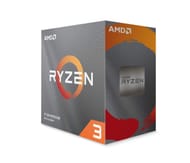
Pros:
- Dirt cheap price
- Great numbers in both single-core and multi-threaded perfomance
Cons:
- Previous gen hardware, less refined 7nm process
- Will serve as a bottleneck to stronger GPUs like the RTX 3070 and above
4. Intel Core i5 11400F - Intel's best value offering since Skylake
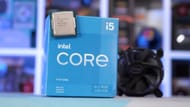
Pros:
- Amazing gaming performance for under 200$
- Low power consumption
Cons:
- Inefficient and outdated 14nm process
- Terrible stock cooler compared to Ryzen counterparts. Will require another cooler to efficiently manage this CPU's temperature under heavy load
3. Ryzen 5 5600x - The Master of All Trades
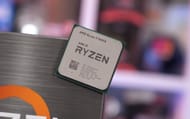
Pros:
- Best overall CPU for the price for gaming and streaming
- Really high clock speeds help push higher frame rates in single core heavy games
Cons:
- Higher launch price than its predecessor
- Overclocking doesn't seem to affect performance much
2. Ryzen 7 5800x - All about the price to performance ratio
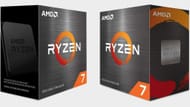
Pros:
- Significantly cheaper than the 5950x with almost 90% of the performance
- Low power consumption for a high-end chip
Cons:
- Low overclocking headroom
- Doesn't come with a cooler included
1. Ryzen 9 5950x - The no-compromise king
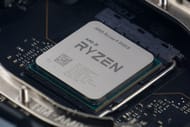
Pros:
- Hands down the best CPU on the market that can game and stream without bottlenecking a GPU
- Incredibly high turbo clock speeds with low power consumption
Cons:
- Much more expensive than other mainstream CPUs
- Doesn't come with a cooler included
When it comes down to it, the choice of a CPU is simply dependant on the GPU that it will be paired with. Making a Ryzen 3 plus RTX 3080 combo would be a complete waste as the CPU would bottleneck the graphics card to the point where the RTX 3080 would never show off its potential.
Vice versa buying a 5950x just to pair it with a GTX 1650 would lead to the GPU being the bottleneck here. While the above options are some of the best in the market, sometimes users don't need that much power to simply game at 1080p, which is still one of the most popular resolutions out there. In these scenarios, an Intel Core i5 11400F paired with an RTX 3060 is more than enough to game.
Ultimately, buyers need to gauge their CPU and GPU purchases together, ensure there are no bottlenecks, and buy a combo based on their budget.
Are you stuck on today's Wordle? Our Wordle Solver will help you find the answer.
